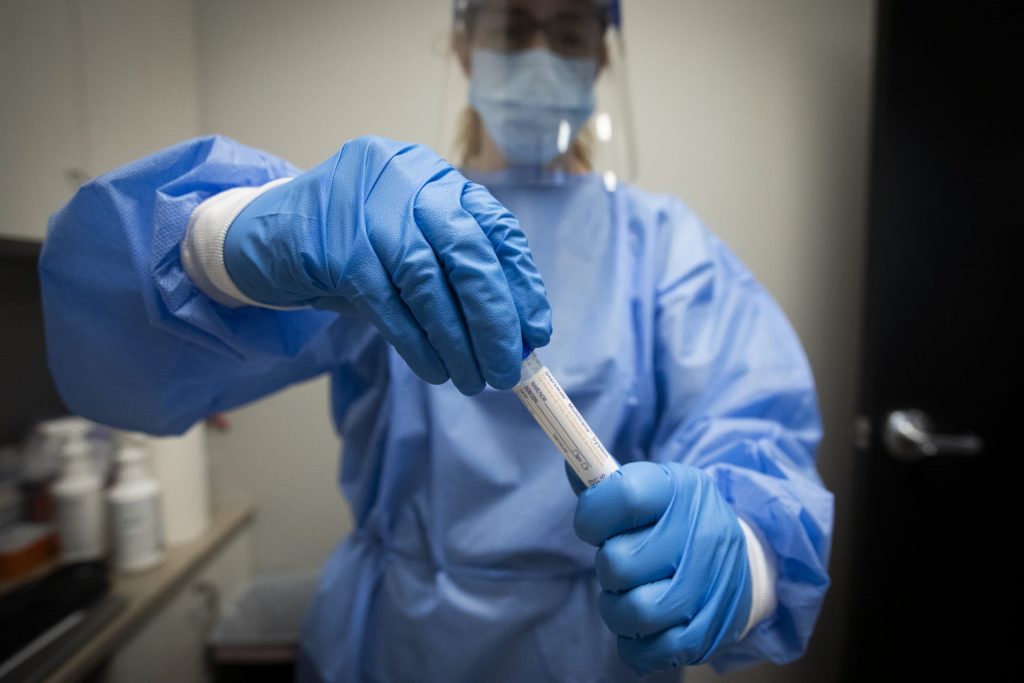COVID long-haulers dealing with issues accessing financial assistance

Posted March 8, 2022 7:37 am.
COVID long-haulers, a term that emerged two years ago to describe COVID-19 patients who realized their symptoms were not going away, are still dealing with the lasting effects of the condition while also learning they are running out of financial assistance.
Diane Labrie, who worked as an administrator in an Ottawa dental office, says she never missed a day of work, but now, she can’t possibly do full-time hours. “It’s extreme fatigue,” she tells CityNews.
Jackie Loree, a nurse who got sick working on a COVID-19 unit during the first wave, can’t do 12-hour shifts anymore because of what she describes as “ongoing chest pain” and exhaustion.
Lorraine Graves still has the “COVID cough” and has to ration her limited energy or face a setback.
“It’s just very hard to stop from being depressed, feeling totally useless and totally hopeless,” she says.
And then there is brain fog. Susie Goulding still struggles to find words, especially when she is tired.
“I feel I have sustained brain damage,” she said. “My memory is not what it used to be.” She is now going to a brain injury clinic to try and treat her symptoms.
They all say the ongoing symptoms make it impossible for them to go back to work full time. But if they don’t, they will pay the price.
“They will cut my medical benefits off. Long-term disability is saying unless there is a real treatment plan, other than rest, in effect, they will not continue paying me as of April,” explains Labrie. The problem, she says, is there is no treatment for her other than rest.
Employment Lawyer Sharaf Sultan has seen many clients in this situation.
“The recourse in that situation is to push back against the insurer and, if necessary, make appeals. My advice is to exhaust every avenue possible,” Sultan says. “Disability insurance providers — they tend to be a bit robotic about how they process claims.”
He notes that because COVID-19 is new, there is an added complication. “[When] something is unconventional, something is novel, I think they are often not prepared to respond to that.”
The World Health Organization (WHO) estimates 10 per cent of people who came down with COVID-19 become long haulers. In Canada, there have been three million COVID-19 cases confirmed to date. That means roughly 300,000 people have suffered from long COVID, but it could be much higher.
Dr. Angela Cheung, a senior scientist at the University Health Network (UHN), co-led a national study on long COVID. She says studies suggest that between 10 and 50 per cent of COVID-19 patients can become long haulers and still have symptoms three or more months after getting sick.
“People usually get better over time,” Cheung said, but adds, “There are some suffering two years later, no question.”
Cheung did not have a good sense of how many were still suffering that long after contracting the virus. She says they are trying to find the cause and target therapy for these individuals.
When asked if long-haulers still grappling with debilitating side effects two years later will fully recover, Cheung admitted, “I hope so, but I don’t know.”
Goulding started a Facebook group for long-haulers that now has almost 16,000 members. She wants long COVID to be recognized in this country as a disability.
“People are losing their homes,their businesses, and they’re not having any kind of financial support,” she explains.
Loree says she has to fight regularly for her Workplace Safety and Insurance Board (WSIB) payments, adding more exhaustion to her current side effects.
“It is stressful living in limbo all the time,” she said. “I suspect it doesn’t help my long-haul symptoms.”
COVID-19 public health measures are being lifted all across the country. The world is attempting to move on from the pandemic, and COVID long-haulers don’t want to be forgotten. The emotional weight is taking a toll.
“You feel so lost like ‘why me,'” questions Labrie.
Graves wants everyone to know that “people like me aren’t faking being sick … we’re faking being well.”
Evidence suggests that vaccinated people have a reduced risk of getting long COVID. One study out of Israel finds it could be by as much as 50 per cent. With high vaccination numbers, the hope is there will be fewer cases as we advance, but that has yet to be fully determined.








